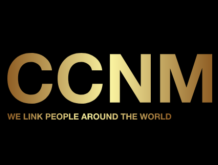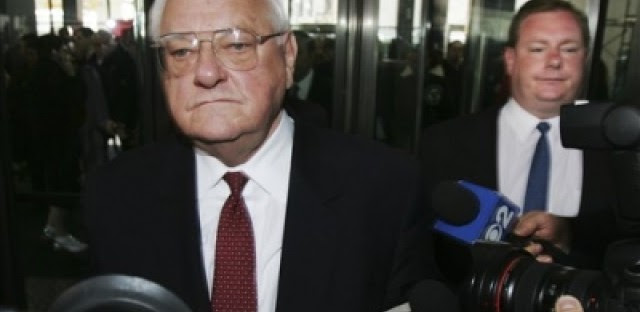Stop Political CorruptionReprint from:
Several recent reports released ranks Chicago as the most corrupt city in the country and Illinois as the third-most corrupt state. “What we find is a very dreary picture. In nearly every sector, whether you talk about aldermen, you talk about Chicago schools, you talk about contracts, in every area corruption is still rife in the city of Chicago,” said Dick Simpson, lead author of the Continuing Corruption in Illinois study and a University of Illinois Chicago political science professor. Simpson cites the convictions of former U.S. House Speaker Dennis Hastert in a sex abuse scandal, Congressman Aaron Schock’s indictment on fraud and theft charges, and the case against Chicago Ald. Willie Cochran for bribery and extortion. In addition, Chicago’s red-light camera scandal sent an assistant transportation department commission to prison for bribery and extortion. “What that means is that it’s harder to get businesses to come here because of its corrupt state, we’re losing population and corruption is one of the reasons we’re losing population. We have undermined faith in government,” Simpson said. Mayor Rahm Emanuel, during a school visit, cited a series of reforms he’s enacted over the last seven years to deal with corruption. “I would question the judgment about where we rank, but I’m gonna leave that aside, ’cause that’s not important. What’s important is, do you have the political will to make fundamental changes in the system? And while we’re not resting on our laurels, I think when you look where I was on day one and where we are today, we made those series of changes,” Mayor Emanuel said. Former Gov. Bruce Rauner repeatedly railed against corruption since before he was elected. During his tenure, his office cited several ethics reforms he has put in place through executive order including a ban on legislators doing work before property tax appeals boards. “Clearly, there is still work to be done and we call on our partners in the legislature to join us and take a stand against public corruption to restore public trust,” Rauner said in a statement. Correspondent Chuck Sweeny: Illinois’ biggest problem is corruption. There’s an old saying: No one is safe when the Illinois General Assembly is in session. That’s probably too cynical. Personally, I have both hopes and fears about what legislators and Gov. J.B. Pritzker will do. We Illinoisans have just endured four years of inertia and uncertainty. Businesses and people hate uncertainty. That and our state’s unreasonably high property taxes have caused people to pack up and leave the Land of Lincoln. Between 2017 and 2018, more than 45,000 people left Illinois, the fifth year in a row that the state lost population. Since 2013, we’ve lost 100,000 people. Meanwhile, the states that border Illinois have been growing. Keep in mind that the people leaving are those who can afford to pack up and move — people with good jobs who pay the taxes that make it possible for local and state governments to operate. The next General Assembly, even though the Democrats have overwhelming majorities in both the Senate and House, must begin to turn that around. Pritzker is a businessman who has a great track record of starting and nurturing tech companies through his “1871” firm. From its headquarters in the Merchandise Mart, 1871 has created 7,000 jobs in its first five years of operation. The governor can bring to state government his understanding of the business world and moderate the Democrats’ traditional view that capitalism is evil and must be heavily taxed, regulated, litigated against and unionized to even be allowed to continue its existence — if the increasingly radical House and Senate will work with him. Illinois will have to walk and chew gum at the same time. We’ve got to grow the economy and avoid over-taxation and over-regulation. And we have to tackle our growing unfunded pension liability, now at $130 billion and growing. We also must reform the pension system, which is reducing local governments’ ability to provide needed services as a growing percentage of property tax receipts must be used to fund pensions that grow at three percent a year regardless of the rate of inflation. One of the main reasons our state economy is stalled is corruption. The state’s history of government officials using their positions to line their pockets is sordid, all the way from ex-Dixon comptroller Rita Crundwell’s $54 million theft from that small city’s coffers to a rogue’s gallery of Chicago aldermen who extorted money — although it must be said that Crundwell is in a league of her own. |
The Definition of Political Corruption: Political corruption is the use of powers by government officials or their network contacts for illegitimate private gain |
|
|
This corruption highlighted currently by the federal indictment for extortion against 50-year Ald. Ed Burke, until recently the powerful chairman of the City Council Finance Committee, makes businesses wary of coming to Chicago, the nation’s third-largest city, says Crain’s Chicago Business. “In Chicago, businesses are ripe targets for political toll-takers when they need city approval to expand a plant, remodel a restaurant or improve a driveway,” Crain’s said. “These extra expenses raise the cost of doing business in the city. Higher costs, in turn, influence business decisions about coming to Chicago, expanding here and staying here.” That tradition of corruption stretches to the state level — four of the governors elected since 1960 have gone to prison along with a sleuth of other elected officials like U.S. Rep. Mel Reynolds, Otto Kerner, Dan Walker, George Ryan, Rod Blagojevich and U.S. Rep. Dan Rostenkowski. No other state can match Illinois’ dubious history. However, a lot of Illinois’ corruption is legal graft, something described in the book on machine politics, “Plunkitt of Tammany Hall” as “I saw my opportunities and I took ’em.” This is how some elected officials enhance their government salaries, by taking advantage of things they know that the public doesn’t, and using their position of influence to encourage constituents to steer business to their non-governmental jobs, such as law firms that specialize in property assessment reduction and insurance businesses. In Illinois, legislators are part-time workers, allowing them to have outside jobs. Where exactly is the line between legal and illegal graft? That’s the question with which courts have grappled for generations. We never talk about ending corruption in Illinois government, preferring instead to talk about the usual issues — taxes, regulations, and debt. However, until we put a serious dent in the ability of politicians to make money on our dimes, Illinois will go nowhere and businesses will leave. Unfortunately, in an interview with our Editorial Board during the campaign, our new attorney general, Democrat Kwame Raoul, expressed no interest in tackling corruption in government, saying emphatically it wasn’t the AG’s job. Well, who the hell’s job is it? Governor? Mr. Speaker? Crickets? The Definition of Political Corruption: Political corruption is the use of powers by government officials or their network contacts for illegitimate private gain. Forms of corruption vary but include bribery, extortion, cronyism, nepotism, parochialism, patronage, influence peddling, graft, and embezzlement. Corruption may facilitate criminal enterprise such as drug trafficking, money laundering, and human trafficking, though it is not restricted to these activities. Misuse of government power for other purposes, such as repression of political opponents and general police brutality, is also considered political corruption. Over time, corruption has been defined differently. For example, in a simple context, while performing work for a government or as a representative, it is unethical to accept a gift. Any free gift could be construed as a scheme to lure the recipient towards some biases. In most cases, the gift is seen as an intention to seek certain favors such as work promotion, tipping in order to win a contract, job or exemption from certain tasks in the case of junior employee giving the gift to a senior employee who can be key in winning the favor. Some forms of corruption – now called “institutional corruption” – are distinguished from bribery and other kinds of obvious personal gain. A similar problem of corruption arises in any institution that depends on financial support from people who have interests that may conflict with the primary purpose of the institution. An illegal act by an officeholder constitutes political corruption only if the act is directly related to their official duties, is done under the code of law or involves trading in influence. The activities that constitute illegal corruption differ depending on the country or jurisdiction. For instance, some political funding practices that are legal in one place may be illegal in another. In some cases, government officials have broad or ill-defined powers, which make it difficult to distinguish between legal and illegal actions. |



